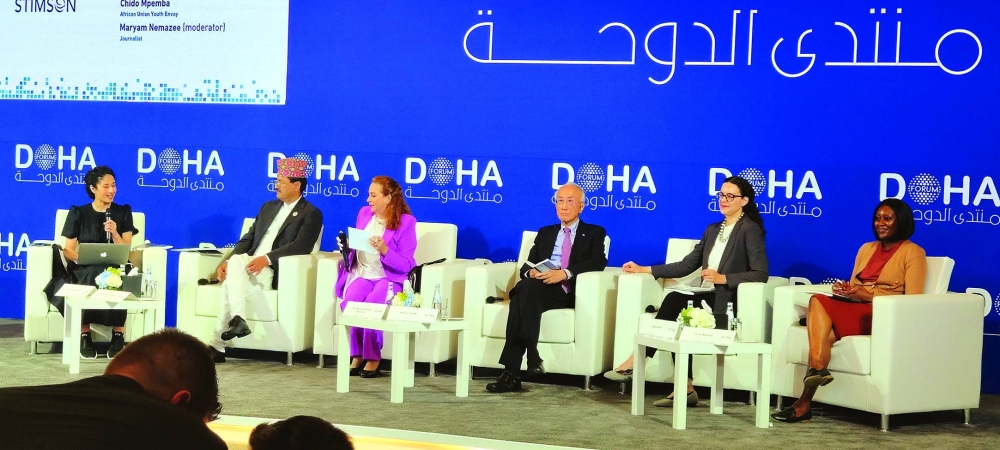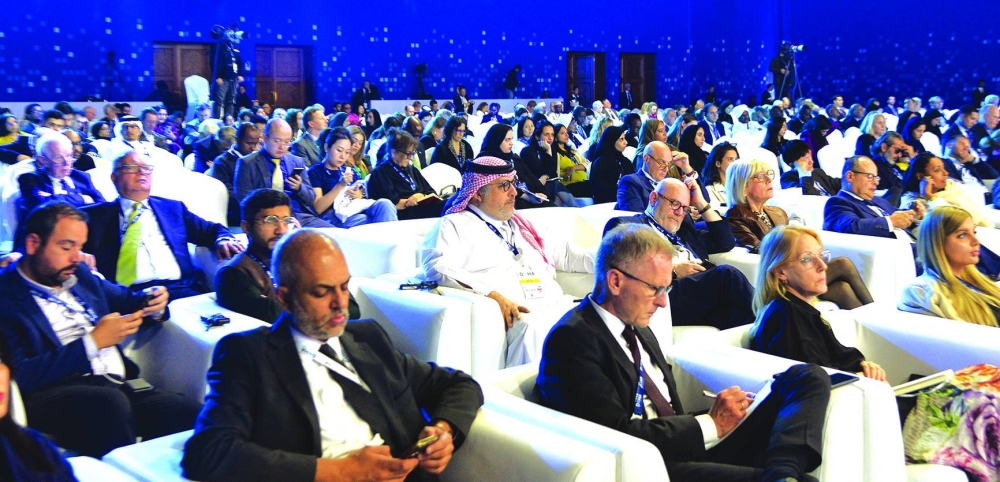Panelists at the session on *Governing our Climate Future*, on the second and concluding day of Doha Forum 2023 Monday, highlighted that there should be more commitment and political leadership to fight the climate change crisis.
Speaking at the session, Maria Fernanda Espinosa, a former minister of foreign affairs and defence of Ecuador and former president of the UN General Assembly, noted that one of the main problems in the climate crisis is the governance, or the gaps in governance, present in many parts of the world.
“COP28 started with great hopes with the adoption of the Loss and Damage Fund, but just before a few hours from the end, 80% of the agreements are deadlocked,” she said. “In multilateral negotiations, parties hold back to put pressure on others ... in due course many things were not agreed.”
“After 28 times that the COP has met, our emissions continue to grow steadily,” Espinosa continued. “Basically we have to operate in an emergency mode. We are in an emergency, and we really call on world leaders to decide on the present and future of human kind.”
“It is an urgent matter because planet Earth can live very well without us, but we can’t live without planet Earth,” she pointed out.
Nobuo Tanaka, chair, Steering Committee of Innovation for Cool Earth Forum and a former executive director of the International Energy Agency, noted that the world must do more to meet the climate change crisis.
“It is estimated that four giga tonnes of carbon emissions will be reduced by 2030, but it is just 30% of the necessary reduction to net zero,” he said. “It is also pledged that renewable energy should be developed to triple what it is today, and the energy efficiency should be doubled by 2030.”
“Other pledges are financing for the developing economies and reduction of the use of fossil fuels,” Tanaka added.
Nepal Minister of Foreign Affairs Narayan Prakash Saud noted that his country is facing the impacts of climate change, with the Himalayan and Annapurna mountain ranges severely impacted.
He also said that his country had hosted the UN secretary-general and many other leaders to have a first-hand experience of the prevailing situation in his country.
Climate Governance Commission policy analyst Maja Groff and African Union Youth envoy Chido Mpemba highlighted various issues of the emerging scenarios and urged for immediate action to mitigate the challenges.
The session was moderated by journalist Maryam Nemazee.
Addressing the global challenge of climate change requires co-ordinated international governance.
Off the back of the latest meetings to contain global temperature rise to 1.5° Celsius, high impact global governance solutions can help fill the gap of the confronting climate emergency.

Panelists on the 'Governing our Climate Future' session. PICTURE: Shaji Kayamkulam

A section of the audience at a session. PICTURE: Shaji Kayamkulam

